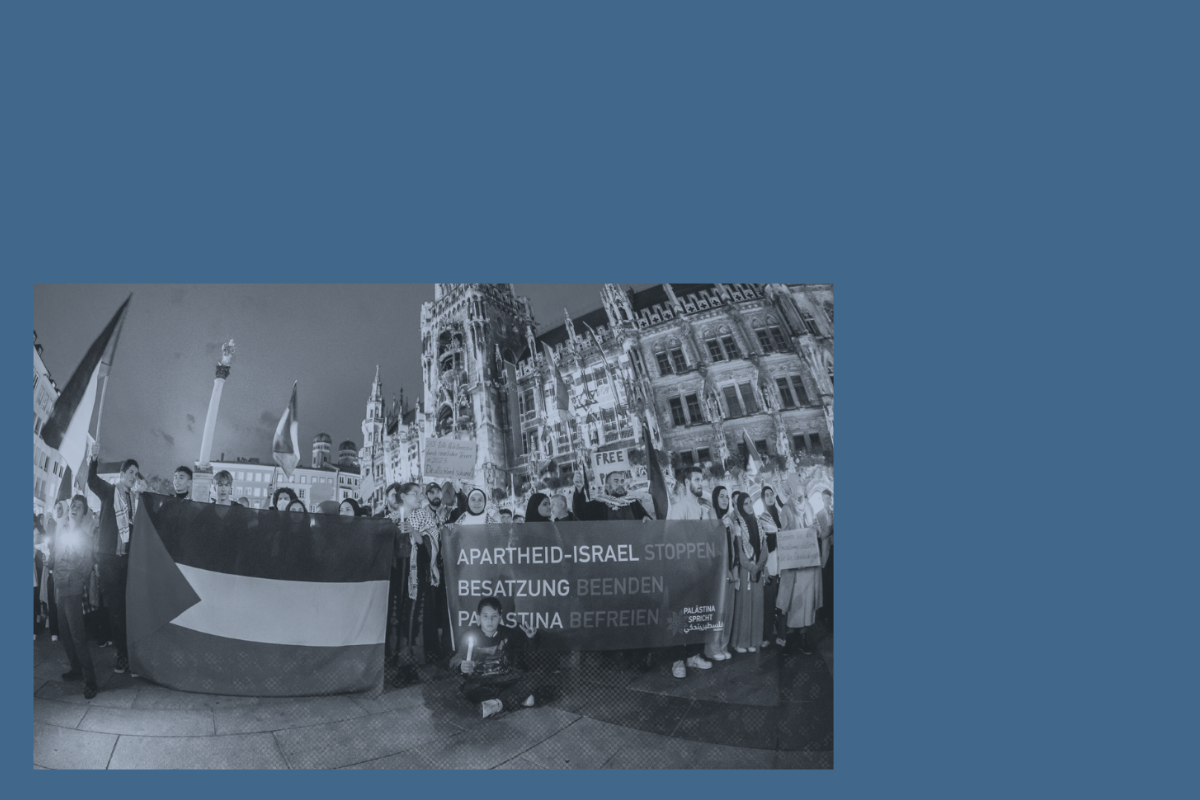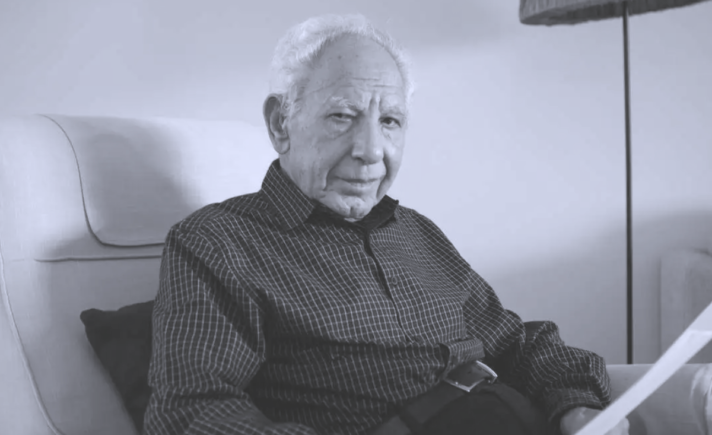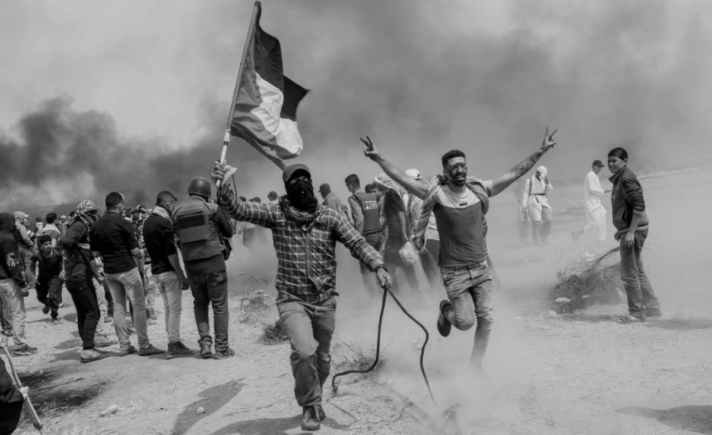After an unsuccessful attempt to move there and integrate earlier this year, I have made the decision to leave Germany. Years of living (almost in hiding) under a violent military dictatorship in Egypt, along with a health scare, made the thought of moving to Germany very attractive: a reprieve from violent bureaucracies, fear of persecution and stigma, a space where basic rights (ferociously fought for over the last two hundred years all over Europe and the world) could be exercised, or at least respected.
Sadly, my brief, unpleasant and difficult stay in Germany confirmed every stereotype we have often complained about or ridiculed. Germany appears unrepentantly bureaucratic and entrenched in racism and xenophobia, fostering a fundamental intolerance to diversity among many Germans – whether this is to the optics of difference (a different racial appearance, for example) or to the sound of different languages (it should not be so outrageous for people to speak languages other than German, in a country with millions of “outsiders” from all over the world). While I know many (white) German friends of mine will be upset about this assessment, those friends are themselves living proof that there are (white) Germans who embody everything to be admired about Germany: true openness to the other, unfailing kindness and empathy, and astonishing generosity and humanity. This letter is not intended to diminish how those Germans have acted towards me or others (and continue to), but they sadly remain an ineffectual minority.
My experience in Germany has been sadly marred by blatant discrimination and a moral cowardice which always comes disguised by some abstraction or other: there is always a law or regulation, or a deep-seated fear of dealing with the past, or a claim to rationality that suspends action altogether, indefinitely and without reason. My stay has been brief but exhausting, and showed the many ways in which German society, post-reunification, epitomises the “death of politics.” In Germany nothing is decided: it is endlessly deliberated until all parties are exhausted and have lost all interest in effecting change and all possible responsibility is diffused through processes of delegation and rule-following. This very measured and intentional method is successful in riding out any political, social or economic upheaval, as any political impetus gets diluted. Angela Merkel built her career on it, earning her the moniker “the compromise machine.”
One could argue that this is the result of post-reunification politics and a long legacy of an ideological divide that cut Germany in half for decades. Against this backdrop, any radical political position is seen as suspect, risking greater societal polarisation and catastrophe. And we all know how that ended in Germany in 1933.
And yet, for all Merkel’s deliberative magic, and for their careful rationalisations for instituting ever more complex rules and regulations, German politicians have failed to understand that compromise alone, and following the rules, do not resolve a moral crisis (many Nazi officers were also, after all, following the rules), and that sometimes a radical position is necessary to undo decades of discrimination or to address a deep moral failure. As such, post-Merkel Germany is a political landscape of failing parties, witnessing the rise of a right-wing party that is running solely on nationalist fictions and absurd political slogans. Even the new left party, headed by Ms. Sahra Wagenknecht, is running on an anti-immigration platform in a country desperate for immigrants, ignoring the irony that Ms. Wagenknecht herself is the daughter of a foreigner.
Politics, Art and “Rational Pragmatism”
Lamentably, the state of theatre and contemporary performing arts in Germany (my own field) has devolved into empty gestures that tout politically edgy slogans but do nothing to actually address the elephant in the room, for example, the millions of immigrants and descendants of immigrants who are treated as second-class citizens.
For the longest time, I, along with many Arabs and people from the region, especially those who work in art and culture, have admired Germany’s investment and support of the arts locally and internationally. Many of us were supported, produced and were invited to Germany. Many of us heard German politicians, cultural workers and artists talk about how important art and culture are to fostering dialogue and creating possibilities to imagine a better future. And for a while I believed that.
I think my belief in this German ideal about the role of art and culture started to fall apart after the 2011 revolution, when I was invited to a roundtable to discuss the significance and meaning of the Arab Spring. In that roundtable, there was an “expert” German politician (who, as it happened, was married to an Egyptian woman) who shot down everything I had to say about regime change or new politics as unwelcome and destabilising for German interests. My frustration was not merely because an old white man was dismissing me, an Arab in his twenties, out of hand; it was that this exemplified to me the “rational” and self-serving politics of the German state. The German government would go on to sign one of the most lucrative contracts with the Egyptian regime, in full knowledge of the amount of oppression and corruption the regime was mired in. The universal values of liberal democracy were not worth fighting for, it seemed, if they would undermine or risk Germany’s economic interests in the region.
This “rational pragmatism” that dominates German politics even extended to the Syrian civil war. When Merkel decided to take on one million refugees in 2015, it was widely thought to be done out of the kindness of the German government, not because Germany was suffering from population decline and facing a real demographic crisis. Despite the urgent need to stabilise the population, the refugee crisis unleashed a torrent of xenophobia and revived German hostility towards outsiders to a frightening degree (the latest election results being an ominous indicator).
But in this letter I would like to address a far more shocking reality: the current response of the German government and German cultural institutions to the war on Gaza.
Palestine and the Holocaust
Personally, I grew up on images of the First Intifada (1987-1993). I saw the first political protest of my life on a college campus in 2002 during the Second Intifada, and witnessed the public outcry in Lebanon during the July War of 2006. Anyone living in the region knows that the Arab-Israeli conflict is fundamental to understanding not just the history of the region over the last century, but also the two world wars and their aftermath. Germany, of course, played the lead role in the latter, meting out death sentences to masses of people and causing the mass exodus of surviving European Jewry everywhere in the world. The rest is all too well known: they exported their problems to former colonial territories, namely Palestine, and the subsequent establishment of the state of Israel ignited a continued military conflict which has claimed thousands of lives, displaced millions and robbed them from their homes and livelihoods for decades.
The very history of post-independence in the Arab world is inextricably linked to the Arab-Israeli conflict. The ebb and flow of alliances, counter-alliances and even regional hostilities and cooperation was to be completely shaped by how the Arab-Israeli conflict unfolded: the 1948 Arab–Israeli War, War of Attrition, Six-Day War, 1973 War, 1982 Lebanon War, etc. There has not been a decade in the Arab world since World War II that did not pass without some kind of military violence from the state of Israel.
And this prompts me to ask: in what world does Germany, or even the state of Israel, believe that this continued military violence, killing, bombing, destroying and displacing Palestinians and Arabs from their lands, would somehow lead to peace with Israel, or guarantee its continued existence? The mass-killing and displacing of the Palestinians, an openly stated desire of the state of Israel, will hardly bring peace, or persuade Israel’s immediate neighbours that they should extend peace to it.
But here lies Germany’s problem. Since the post-World War II settlements, and the Wiedergutmachung (reparations paid to survivors of the Holocaust – the biggest of their kind in modern history), German politicians have wanted nothing to do with this chapter of their history except as a signal of their repentant status as Israel supporters. It has never been clear that Germany actually questioned the consequences of Nazi policies and laws on anyone outside Europe, or on any victims other than Holocaust survivors and their descendants – especially given that many Nazi-era laws and policies have remained in force in Germany since that time. The blitzschnell process of denazification after Germany’s defeat did not even scratch the surface of how and why an entire society could condone or stay silent against a murderous, genocidal regime.
German complicity with or acquiescence to the Nazis was not just a moral failure: it was an entire mindset that should have been questioned and questioned until its roots lay bare and its structures undone, and then reformed. This never happened, and certainly not on a scale that actually would prevent it happening again. The best that German politicians could do was to dismiss what happened during the Nazi period and highlight Germany’s embrace of liberal democracy and rehabilitation into Europe, dismissing the whole historical experience as nothing but an aberration of sorts. An unfortunate slip, that cost the world a global war, millions of deaths and endless destruction.
Memorialisation and Guilt
My experience with Germany dealing with its past is premised upon two main pillars: the politics of memorialization and the politics of guilt.
Endless memorials erected all over Berlin (and to a lesser degree other German cities) are a testament to people externalising those horrors in statues and memorial structures, as if somehow the more memorials, museums and theatres that are built to memorialise them, the less Germans have to think about them. The less the weight of recognition is carried within. But memorials hardly teach people how to think, or even to question, and I find an interesting correlation between how many memorials Germany has built over the past three or four decades, and how racist, right-wing and toxic its politics have become.
The other pillar is the politics of guilt. Again, an absolutely necessary political gesture to allay fears in Europe and the EU’s strategic partner, the US (as if to prove their pro-Israel credentials as defence against antisemitism accusations.) But it also does something much more sinister: legitimise the German state’s violence and discrimination against racial minorities and marginalised groups. Vice-Chancellor Robert Habeck’s recent statement and Chancellor Olaf Scholz’s new migration policy both expose German racism and xenophobia as well as showing the conflicted nature of Germany’s claim to rational authority in the face of its own systemic violence and discrimination. Habeck’s speech openly threatens Arab and Muslim communities in Germany, going as far as punishing them with deportation and stripping them of their German nationality should they express their support and solidarity with the Palestinian people (a shocking reminder of Nazi laws that specifically singled out German Jews, Black people, and Roma and Sinti communities from German citizenship). Scholz’s new migration policy completely disregards the fact that Ukrainian refugees in Germany were not only granted immediate residency status, but were not considered either refugees or immigrants. Once again the “others” are singled out as a source of racial anxiety and potential political conflict.
It is indeed a brilliant tactic to constantly sing and shout one’s support and praise of Israel, to allocate huge amounts of funds to memorialise the Holocaust, and endlessly stage German historical responsibility for World War II – but completely restrict this display to the Holocaust, and nothing else. Germany’s only guilt is the guilt of the Holocaust, a singular event that excludes any other violation against any other group of people. German politicians decide what constitutes a tragedy and what is worth protecting (the Ukraine war being a glaring example of how the German state responded to a European military conflict and dedicated its entire state apparatus just for that).
It is a position that betrays moral blindness and excuses the German state from whatever else it does, from its xenophobia to its exploitation of the labour of millions of workers (through the Gastarbeiter programs, for example). The systematic killing of Palestinians and Arabs in the decades since 1948 are reduced to an unfortunate consequence of the existence of the state of Israel. As Palestine is bombarded by the IDF, the German state parrots the same soundbites about “Israel’s right to exist.” But of course, it’s in Israel’s continued existence that Germans are able to congratulate themselves on how supportive and morally upright they are in correcting the mistakes of their grandparents, as Mr. Habeck mournfully pointed out in his speech. And only through the existence of the state of Israel, can the German state censor, dismiss and silence any other voice. There are no victims but what the German state defines as victims and there are no rights but those whom the German state defines as worthy of them.
Germany and Gaza
The current war on Gaza has received by far the worst coverage and representation of the Arab-Israeli conflict I have seen in my long exposure to Western media. I am not talking about downplaying Palestinian suffering and death, which has always been the case, but about the extremely cynical tactic of only giving a platform to Israel to explain and justify its war, while discrediting and dismissing everything to do with the Palestinian side. Never have I seen Israeli politicians so fanatical, nonsensical and downright genocidal in their public statements, justifying the mass murder of civilians as necessary to “eradicate Hamas” and somehow framing the killing of thousands as an inevitable but necessary “collateral damage” (I have even read a few Israelis on social media arguing that ground invasion will “liberate” the Palestinians from Hamas.) And what is shocking is not just how blatant it is, but how it enables one of the worst military operations against Palestinian civilians since 1948.
German complicity, hypocrisy and intentional conflation of basic terms of the debate (including anti-semitism with anti-Zionism, Israeli society with world Jewish diaspora, right to self-defence with mass murder) are enough to make us pause and think about what the biggest economy in Europe stands for. While we contend with that, recent attempts at silencing, censoring and intimidating anyone who dares to show solidarity with Palestine (of course, under the pretext of fighting antisemitism) are forcing all of us, inside and outside the country, to question all those ideals we have come to believe about Germany. The lofty intellectual traditions that we have been engaging with all our lives are brought to sharp questioning, and notions of universal morality, communicative rationality or even radical responsibility (something many Germans are unwilling to face) stand in mockery of their worldly consequences.
I fear for my friends, their lives and their continued presence in a society that is so deeply hostile to their existence. I fear for their future in a society that is willing to pass laws to censor and punish anyone who does not sing the praises of Israel and Germany’s eternal support of it. But I also fear for our own disenchantment with values and ideals that we have long held up against terrible political realities: our belief in universal justice and freedom, and the moral duty we owe our fellow humans, and in the possibility that humans are able to make the right decisions even in the darkest of times, even when everyone around us seems to be silent or cheering on the massacre. There have been responses from Jewish initiatives and Jewish intellectuals that are trying to break the silence and rehumanize the Palestinians. But I still fear that we are all becoming too cynical to believe in the possibility of shared values and ideals, especially when the West keeps telling us and showing us that these very values and ideals don’t apply to us.
As Gaza descends into darkness and faces obliteration, and as German cultural institutions and theatres publish cowardly statements about how war is a reductionist act, I hope my friends will continue to light candles, to speak the truth, and not give in to the silence. If all we can do is name things and say them, then that is what we will do, even if the German state is trying to make us believe otherwise.
What kind of future this leaves us, I don’t know. But I know that we will still try to speak, name things for what they are, and remind the German state and the West that no power lasts forever.




